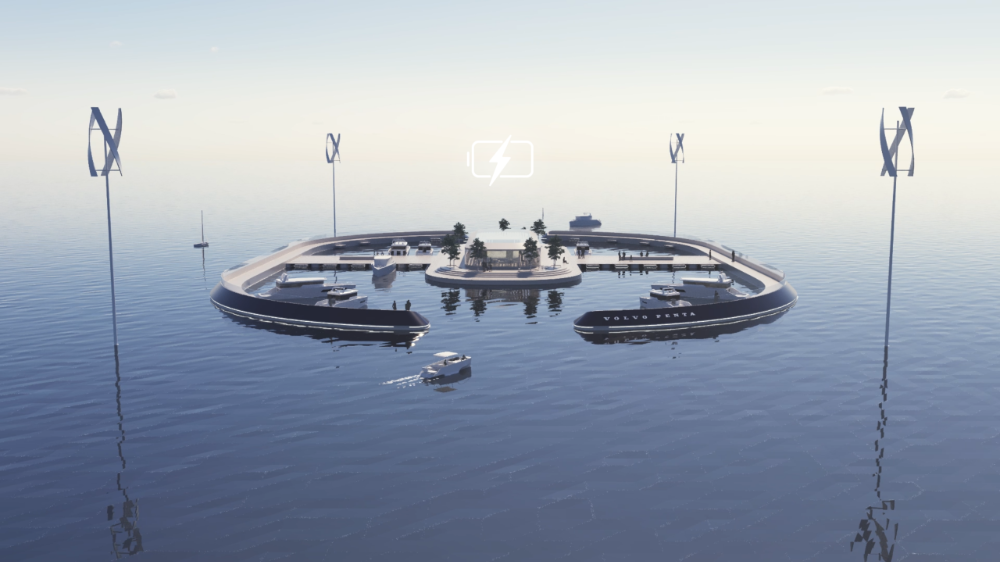Could tech revolutionise yachting?
Volvo Penta explains the thinking behind the reimagining of the yachting experience presented at CES…
Volvo Penta has unveiled a concept that would provide a new experience of yachting by drawing on the company’s knowledge of energy generation, storage and distribution. The concept would enable electric vessels to recharge in novel ways. The idea was first presented at the 2023 Consumer Electronics Show (CES).
SuperyachtNews spoke to Johan Inden about how the concept was created as a continued evolution of and reaction to the disruptors that are already moving the superyacht industry. When discussing sustainable propulsion, Inden explains that the concept opens a discussion into how to improve the design of integrated recharging stations compared to regular installations. Inden explains that there is not only one solution to providing superyachts with electric propulsion systems: ‘there are many roads of innovation and it will definitely be a combination of sustainable fuels, fuel cells and batteries, and they will be built and set up in a way that accommodates the use case for that specific yacht.’
Inden emphasises that the technology would offer an experience of yachting that is more silent, marine-life friendly and tailored to the user’s needs. The concept presents the various ways AI navigating systems could improve the yachting experience such as by re-routing a boat when approaching a storm or when sensing the presence of marine life. Protecting the marine environment would be achieved by data sharing between vessels to alert them of certain zones to avoid.
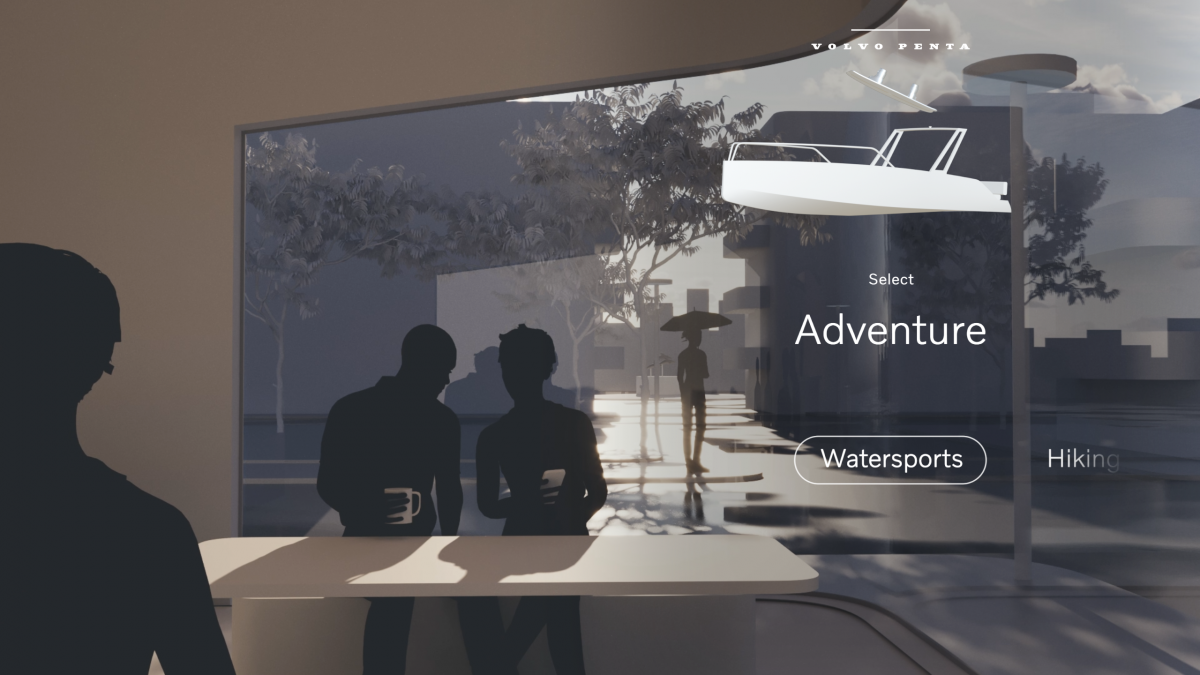
One of the wackier ideas is that of the ‘Volvo Penta Island’, a floating, independent structure that acts as a recharging station. In order to not need to hang around for hours while the yacht recharges, restaurants and service support would be provided as part of the experience.
Other ways to recharge include ‘digital anchoring’: a cloud-based infrastructure that would connect boats so that they could meet out in the open water, allowing those aboard to socialise and share services. This could permit electric-powered yachts to share energy between themselves. Energy could even be provided via small moving recharging stations named ‘stingrays’ that navigate to the yacht's location.
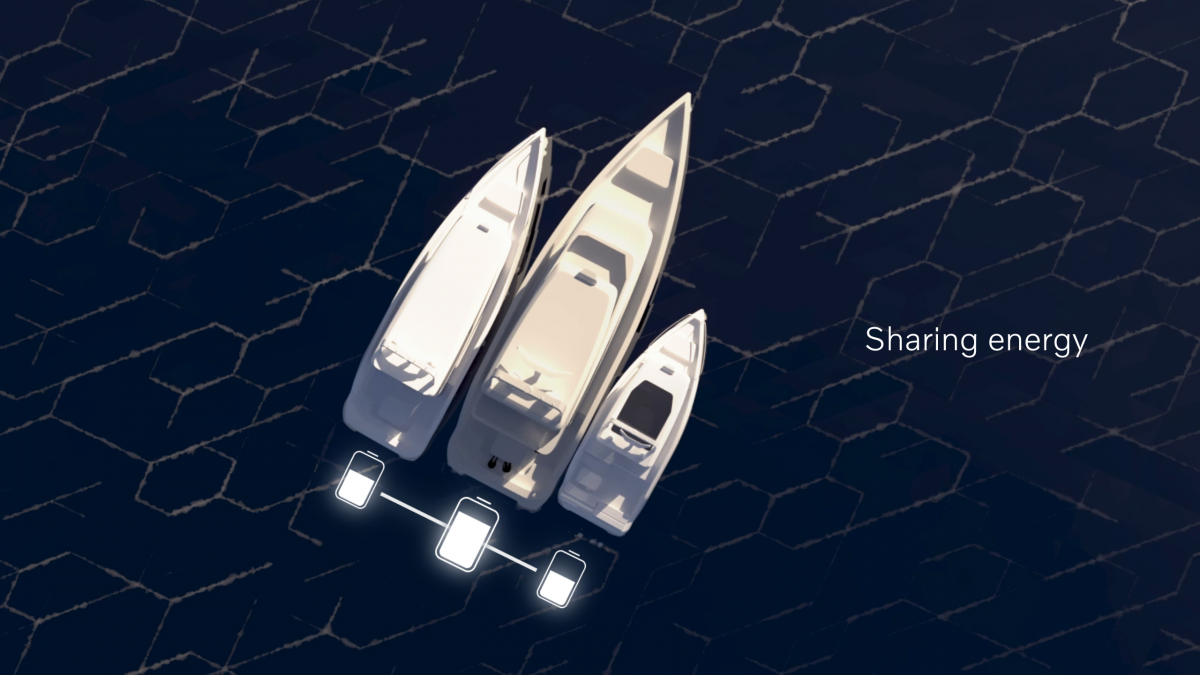
While parts of the concept are further away from home, others are not that removed from reality. An interesting way to attract more first-time buyers to the market is via the use of Artificial Intelligence (AI) assisted driving. The AI-instructed ‘nudges’ would facilitate the process of commanding a vessel. In fact, Volvo Penta has already seen the positive effect of similar technological innovations at work. Inden elaborates: ‘it encourages people to either take their vessel to trickier destinations or tricky harbours. We also see people grow in confidence, daring to take the next step to the next size vessel.’
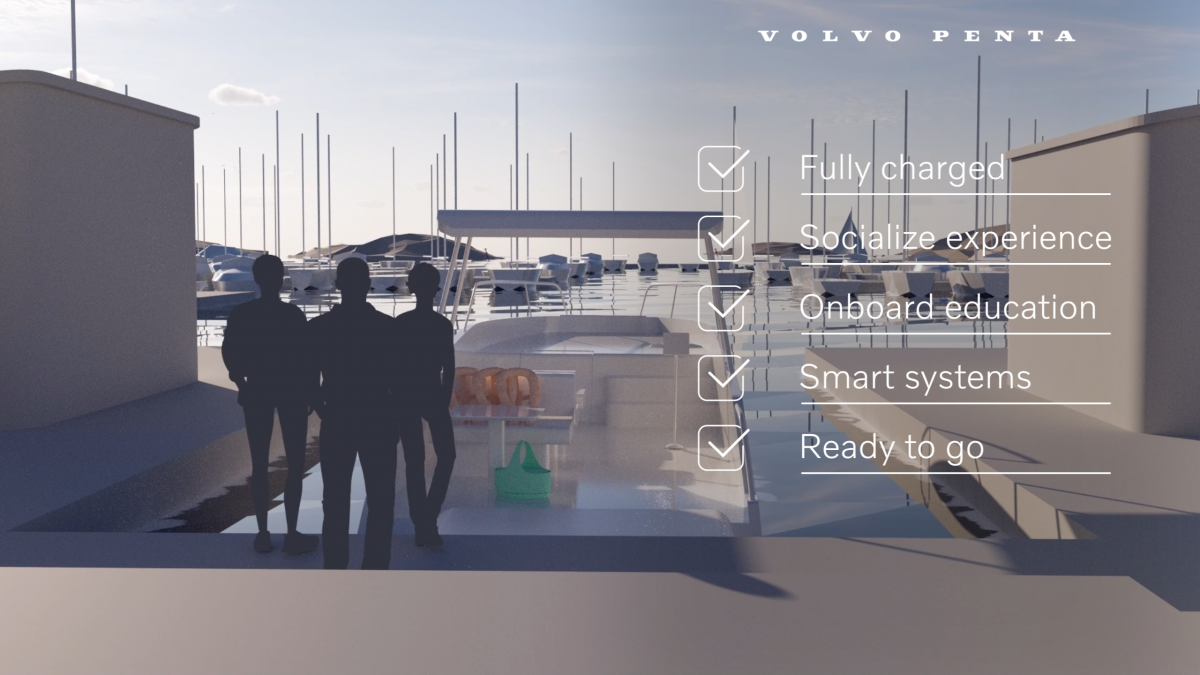
Future technology available could include self-driving yachts that would deliver themselves to the customer meeting point at the marina and navigate themselves to open water. Volvo Penta already offers AI-assisted driving called assisted docking.
Inden says ‘so now we help the captain not only to navigate with a joystick at their fingertips, but we automatically compensate for the wind drift or the drift from the currents.’ Volvo Penta's technology has been able to fully dock a yacht with no intervention from the captain with the use of cameras around the hull to give increased visibility. Inden argues ‘we are not so far away from the use of forward-facing radars for any objects above the surface and underwater monitoring to be able to steer a vessel based on the surroundings.’
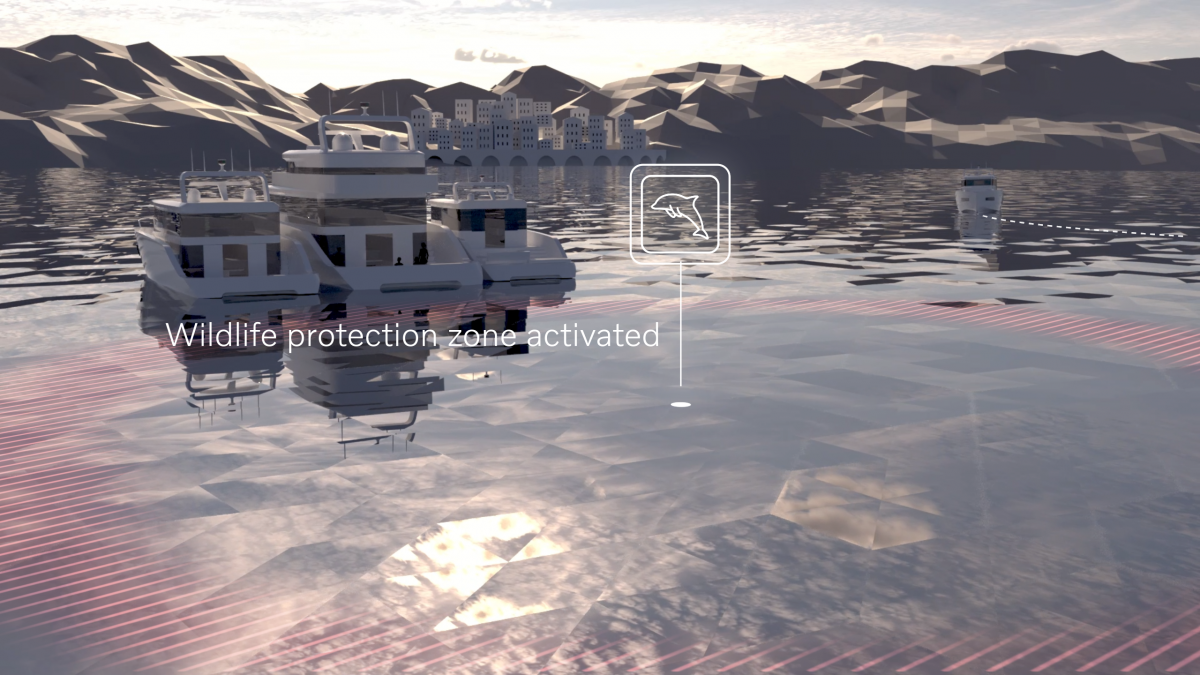
As AI tools develop in capability, they learn to customise themselves to the user’s preferences. Machine learning is already extensively employed to perfect the customer’s interaction with music and streaming platforms, where algorithms offer up recommendations based on the users’ habits. Volvo Penta predicts its own technology will be useful to suggest destinations and sporting activities on the water.
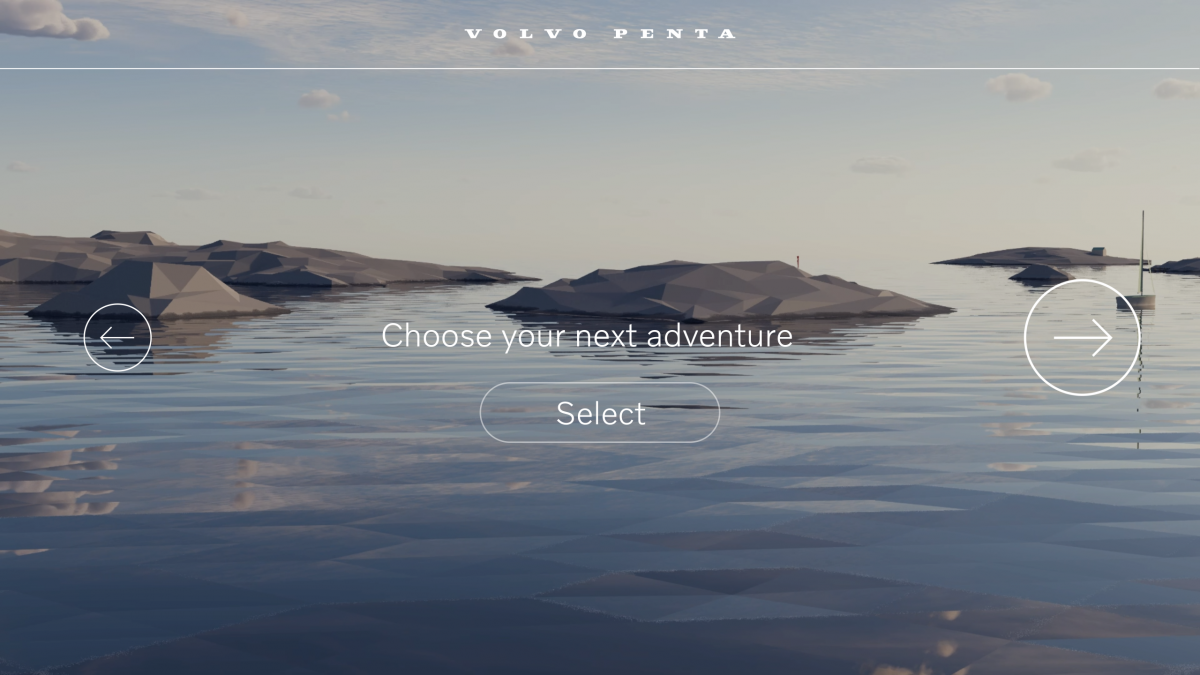
When challenged as to whether innovations in technology to aid navigation would remove the fun from yachting, Inden spoke about the work Volvo Penta do at their test facility: ‘We operate on 30, 35 test vessels and we have a team of professional captains. It's interesting just to monitor how they naturally embrace that (the technology), not for the sake of testing, but for the sake of comfort, safety and their work environment. It is a kind of measure for us. I would say that the things we've brought like the joystick and the assisted docking have become a natural part of their working environment and they appreciate that very much.’
NEW: Sign up for SuperyachtNewsweek!
Get the latest weekly news, in-depth reports, intelligence, and strategic insights, delivered directly from The Superyacht Group's editors and market analysts.
Stay at the forefront of the superyacht industry with SuperyachtNewsweek
Click here to become part of The Superyacht Group community, and join us in our mission to make this industry accessible to all, and prosperous for the long-term. We are offering access to the superyacht industry’s most comprehensive and longstanding archive of business-critical information, as well as a comprehensive, real-time superyacht fleet database, for just £10 per month, because we are One Industry with One Mission. Sign up here.
Related news
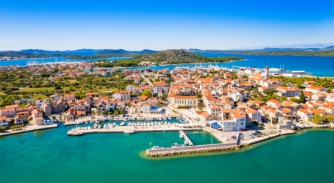
Superyacht Irina VU disappears
The 35m Sunseeker yacht went missing three months ago but the authorities have only just realised
Fleet
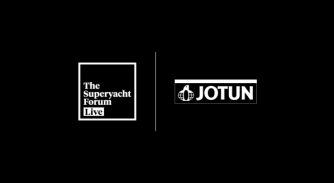
Meet the Partners: Jotun’s lifecycle solution
Gary Ward reflects on the potential for the coatings sector and industry to move towards a greener future
Event
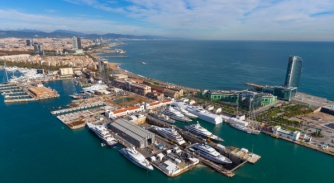
MB92 announces significant structural changes
MB92 adapts its management structure at its Spanish and French shipyards
Business
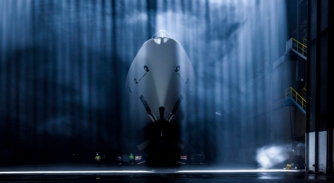
Oceanco’s 105m M/Y 'H' reimagined
The Dutch custom yacht builder delivers a complete transformation of the 105m yacht
Fleet

Meet the Partners: Camper & Nicholsons
Marianne Danissen presents her vision for the future of the industry
Event
Related news
Superyacht Irina VU disappears
3 years ago
Meet the Partners: Jotun’s lifecycle solution
3 years ago
MB92 announces significant structural changes
3 years ago
Oceanco’s 105m M/Y 'H' reimagined
3 years ago
Meet the Partners: Camper & Nicholsons
3 years ago
NEW: Sign up for
SuperyachtNewsweek!
Get the latest weekly news, in-depth reports, intelligence, and strategic insights, delivered directly from The Superyacht Group's editors and market analysts.
Stay at the forefront of the superyacht industry with SuperyachtNewsweek


